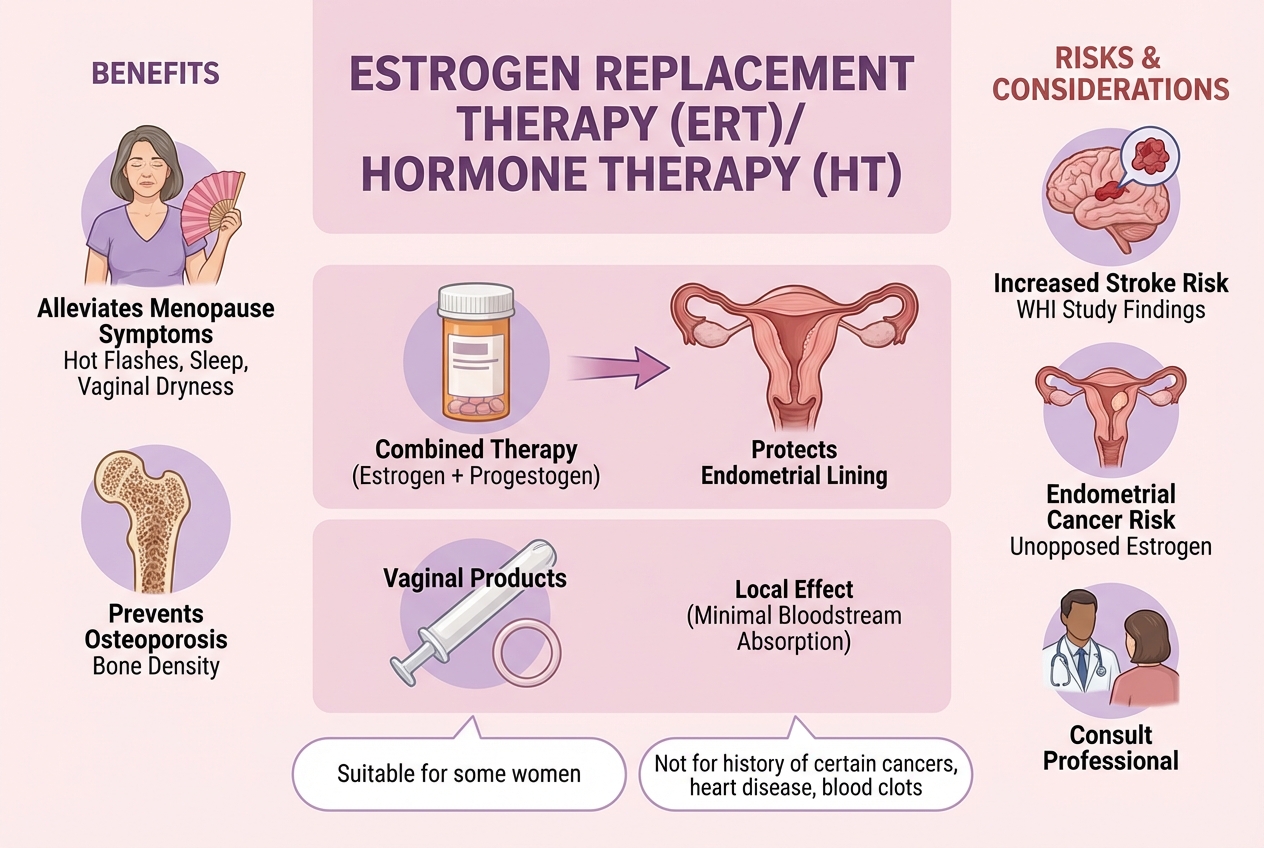
Estrogen Replacement Therapy (ERT) is a hormone-based treatment primarily used to alleviate menopause symptoms. It helps manage short-term menopausal changes such as hot flashes, sleep disturbances, and vaginal dryness. Nowadays, this treatment is commonly known as hormone therapy (HT) and is believed to help prevent osteoporosis, a condition linked to decreased estrogen levels. Recently, the term "replacement" has been dropped, and it's simply called estrogen therapy.While estrogen therapy may aid in osteoporosis prevention, it has been associated with health risks in some groups. The 2002 Women's Health Initiative (WHI) study indicated that estrogen therapy during menopause could increase the risk of strokes and other issues. However, these findings were based on older women, and other research suggests estrogen might offer protective benefits if started earlier. The full scope of risks and benefits remains under investigation. Vaginal estrogen products are effective for managing vaginal dryness and more severe vaginal changes but may not address hot flashes or osteoporosis since they release minimal estrogen into the bloodstream.Using estrogen therapy without additional hormones (unopposed estrogen therapy) raises the risk of endometrial cancer. However, combining estrogen with progestogen significantly reduces this risk, as progestogen prevents the estrogen-induced thickening of the endometrial lining. Deciding on whether to pursue combined or single hormone therapy should be done with a healthcare professional who can provide personalized advice on potential risks and benefits. Estrogen therapy might not be suitable for every woman, particularly those with a history of certain cancers, heart disease, or blood clots.




